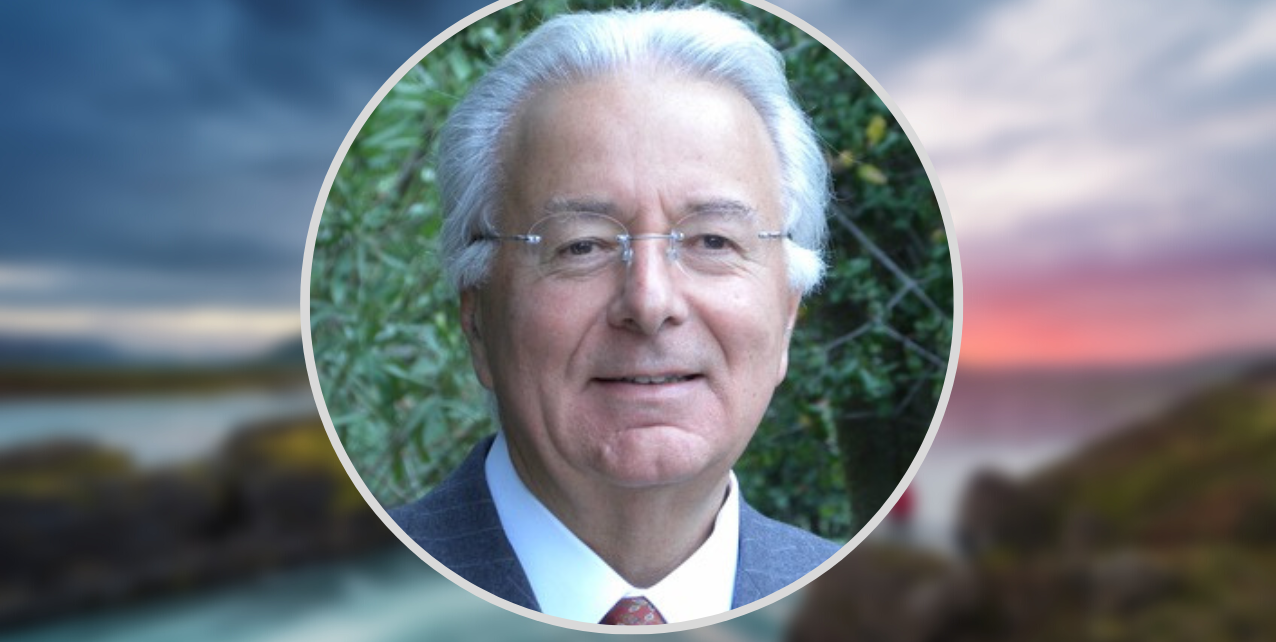Join the physicist, and inventor of the microprocessor and touchpad, Federico Faggin, in a wide-ranging exploration of the relationship between science and spirituality. Federico starts with a colorful rendering of the four phases of his life, and his transition from a hard-core materialist into a deep student of consciousness. He shares how a single experience, lasting less than a minute, changed his life forever. Federico then relates a number of eye-popping experiences, all of which proclaimed that consciousness, not matter, is the foundation of reality – and that that foundation is expressed as love. What triggered this opening, and what did he do to cultivate his experiences? How did the nondual traditions, and other forms of transpersonal work, help him understand his experiences?
Dr. Faggin then turns to his quantum information-based view of panpsychism, whether this theory can be tested or not, and its remarkable implications for both science and spirituality. What does “quantum” mean in this context? “Science and spirituality are both right, and both wrong,” he says, but what does that mean? Is mathematics the supreme language of communication these days, or just the best way to talk to the “high priests” of science? What is the relationship between artificial intelligence and artificial sentience, or consciousness? Can a computer ever be conscious? His theory completely overthrows materialism, and offers an entirely new direction for science. Can this theory, based on his experiences, lead others to those experiences – is it psychoactive and prescriptive? What does it mean to say that matter is merely a symbol? What role does light have to play in all this?
Federico talks about “consciousness units,” the place of free will, what happens after death, and why spiritual practitioners might be interested in his work. He then discusses his path of practice, and why he doesn’t adhere to any single tradition or teacher. What does he see as blinds spots in the wisdom traditions? Behind his amazing life is the deep quest to know; to understand the nature of reality and consciousness – and to help the world.
About Dr. Federico Faggin
Federico Faggin was born in Vicenza, Italy, and graduated in physics, summa cum laude, from the University of Padua in 1965. Faggin came to the US in 1968 working for Fairchild Semiconductor where he led the development of the MOS Silicon Gate Technology, a key process technology that was adopted worldwide to manufacture most contemporary integrated circuits.
Working for Intel Corporation from 1970 to 1974, Faggin designed many products, including the world’s first microprocessor, the Intel 4004; the 8008, 8080 and 4040 microprocessors; and the first high-speed static RAM memory.
In 1974 Faggin began an entrepreneurial career and co-founded several start-up companies. Notable are Zilog, Inc., where Faggin led the development of the Z80 microprocessor, and was President and CEO until 1980; and Synaptics, Inc., the developer of the early touchpads and touch-screens now universally used in nearly all mobile devices, where Faggin was President and CEO from 1987 to 1999, and Chairman of the Board from 1999 to 2009.
Faggin is now President of Federico and Elvia Faggin Foundation, a non-profit organization dedicated to the scientific study of consciousness. Faggin is the recipient of many international awards, including the 1997 Kyoto Prize in Advanced Technology, the 2009 National Medal of Technology and Innovation, from President Barack Obama, and the Cavaliere di Gran Croce in 2019 from the Italian president Sergio Mattarella.
To learn more about Federico, watch The Four Lives of Federico Faggin.
Inside the Podcast
Federico’s introduction.
Quick bio.
How did you become interested in computers?
The introduction of microcontrollers to the market.
The beginning of the success of synoptics.
Transition from hardcore materialist to idealist.
How to know what consciousness is?
Consciousness must be fundamental to everything.
The spontaneous opening of the heart and mind.
Intro to consciousness non- duality.
Consciousness without free will makes sense.
Rules vs. Freedom.
The fundamental level of safety.
Dance between the humanities and the sciences.
The relationship between consciousness and matter.
The irreducibility of the conscious units.
The relationship between mind spirit and matter.
How can this theory be tested?
Michelson morley Experiment.
How will this theory lead to any experience?
Suffering is the only way to know.
The end of the body mind matrix.
The supremacy of the supremacy of experience.
Living fully in the world.
How to be open to new ideas.





